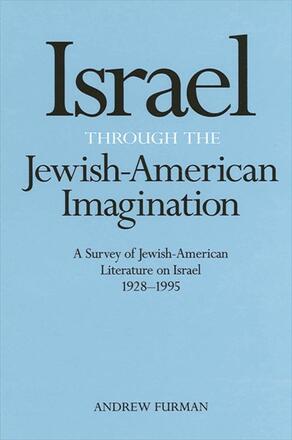
Israel Through the Jewish-American Imagination
A Survey of Jewish-American Literature on Israel, 1928-1995
Alternative formats available from:
Examines eight Jewish-American writers--Meyer Levin, Leon Uris, Saul Bellow, Hugh Nissenson, Chaim Potok, Philip Roth, Anne Roiphe, and Tova Reich--who have "imagined" Israel in their work.
Description
CHOICE 1997 Outstanding Academic Books
Analyzing a wide array of Jewish-American fiction on Israel, Andrew Furman explores the evolving relationship between the Israeli and American Jew. He devotes individual chapters to eight Jewish-American writers who have "imagined" Israel substantially in one or more of their works. In doing so, he gauges the impact of the Jewish state in forging the identity of the American Jewish community and the vision of the Jewish-American writer.
Furman devotes individual chapters to Meyer Levin, Leon Uris, Saul Bellow, Hugh Nissenson, Chaim Potok, Philip Roth, Anne Roiphe, and Tova Reich. To chart the evolution of the Jewish-American relationship with Israel from pre-statehood until the present, he considers works from 1928 to 1995, examining them in their historical and political contexts. The writers Furman examines address the central issues which have linked and divided the American and Israeli Jewish communities: the role of Israel as both safe haven and spiritual core for Jews everywhere pitted against its secularism, militarism, and entrenched sexism.
While the writers Furman examines depict contrasting images of the Middle East, the very persistence of Israel in occupying that imagination reveals, above all, how prominent a role Israel played and continues to play in shaping the Jewish-American identity.
Andrew Furman is Assistant Professor in the Department of English and Comparative Literature at Florida Atlantic University.
Reviews
"What I like most about Furman's book is its willingness to break new ground, and to do that in ways that subsequent scholars will surely have to take into full account. Here, he amply demonstrates that he has not only 'done his homework,' but also that he is well aware of the controversies that naturally attach themselves to his subject. This is sure to be an important contribution to the study of Jewish-American literature. " — Sanford Pinsker, Franklin and Marshall College